I asked this in a different question today but I'm afraid that won't get any solution because of how it was phrased.
I have a json input that has the following data:

As you can see, the option_value item is an Array in one object and a simple string in another object.
How can I make Gson handle this properly? My class has this described as a List object, so it works for the first few items where option_value is an array, but when it becomes a string, the app crashes and I get a json parse exception.
Is there a workaround for this?
UPDATE
Adding the relevant part of my class as requested:
public class Options
{
String product_option_id;
String option_id;
String name;
String type;
String required;
List<OptionValue> option_value;
// get set stuff here
public class OptionValue
{
String product_option_value_id;
String option_value_id;
String name;
String image;
String price;
String price_prefix;
// get set stuff here
}
}